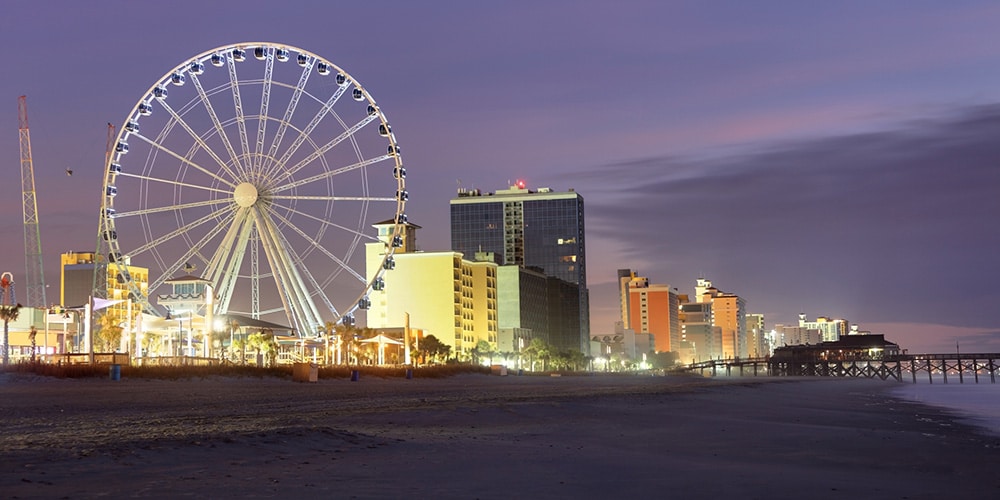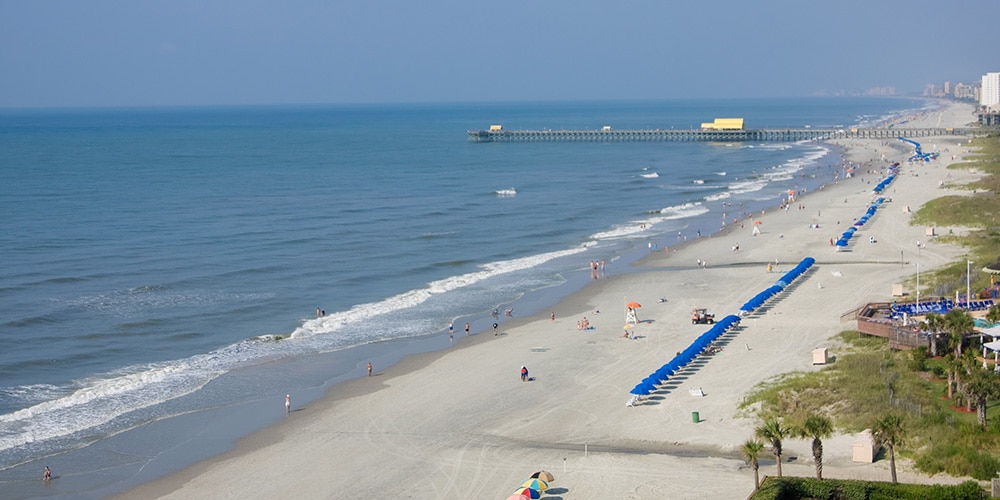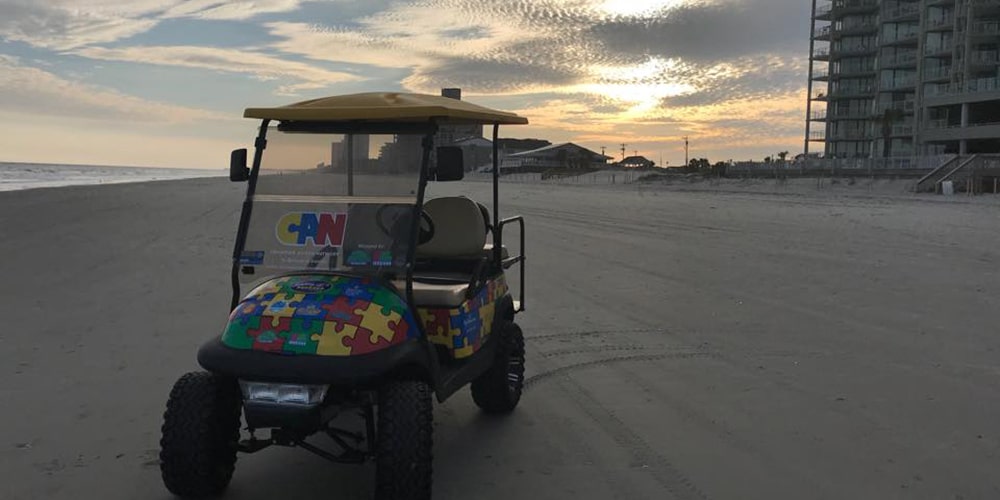
For families with children with autism, a true vacation can be hard to come by. There are layers of additional, unpredictable challenges. Children with autism have sensory processing issues making lights, sounds, smells, crowds and new environments difficult to tolerate. When the child becomes overstimulated they often communicate their discomfort through tantrums and meltdowns. Others can be critical and judgmental of these episodes, making rude comments about parenting skills or the child’s behavior. Because of this judgment, many families opt to stay home rather than embark on a family trip.
But Myrtle Beach and Surfside Beach, South Carolina, are striving to change the way families with children with autism travel and the city is actively creating an environment where families impacted by autism feel welcomed and supported without judgment.

Champion Autism Network, Inc. (CAN) is a nonprofit autism awareness organization based in Surfside Beach, South Carolina. Founded in 2012 by Becky Large, a mother of a child on the autism spectrum, CAN’s goal is to raise autism awareness, reduce criticism and judgment and help families with children on the autism spectrum develop a network of like-minded people and supports — locally and beyond. In January 2016, the town of Surfside Beach issued a resolution declaring it the first autism friendly travel destination.
The autism friendly travel designation means that the entire destination is saying “we’re inclusive.” Many town and city council, police and first responders are trained in working with people with autism, CAN orchestrates training for hotels, resorts, venues, city employees, speaking engagements and public service announcements to spread autism awareness.
Visitors coming to Myrtle Beach can receive a CAN card ahead of their visit. By simply showing the CAN card at almost 30 CAN-participating restaurants and attractions, families with a child with autism can receive understanding and supportive service from trained staff. Without a word, families receive a discount and these restaurants understand that you may have to leave at a moment’s notice, you may be bringing special food for a member of your family, you may have special requests when ordering or your family member with autism may have troubles sitting still or not making eye contact. Further, there are nine lodging options that are ready to serve and support families and their sensory needs.

“Generally people are coming because they just feel like they can come here and be supported,” Large explains. “It’s the right thing to do. You just need to lead with love and be reactive and be aware.”
Some families have enjoyed their autism-friendly travel to Myrtle Beach so much that they continue to return year after year. John Ordover of New York has been taking his family to the area for four years. “Compared to previous experiences of traveling with our son, where we’d get looks and stares, it was so refreshing to bring him to Myrtle Beach. Everyone was aware of the fact that he was autistic. They were ready for it, they prepped the hotel room for him, they had people in the community aware, and support services were available. No one on the beach was staring or making comments.” In Myrtle Beach, the Ordover family found a welcoming community where they were completely accepted.
Through CAN, the Ordover family found someone who could give their son surfing lessons. “He had an absolute blast doing that, so we could take time for ourselves. As parents of someone with special needs, we were able to get off the treadmill for a while,” Ordover says.
To receive a CAN card and other support, families can contact the non-profit directly.
By Bridgette Langdon

